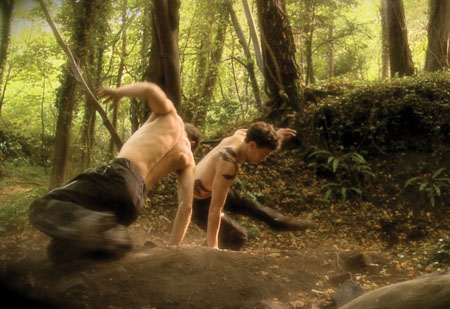Artists Interviews
November 2011: Ríonach Ní Néill
Introduction
October / November Guest Editor Ríonach Ní Néill has spoken to dance artist Wilkie Branson after his performances at the Baboró International Arts Festival for Children, Galway about his dance, his use of B-boying and what it is like to be a self-taught dance artist working in Ireland.

Ríonach has prepared the following blurb:
Wilkie Branson is a young choreographer of Champloo Dance Company. Having previously choreographed a B-boy christmas piece for Travelling Light Theatre Company and Bristol Old Vic, with White Caps, his first full length work for theatre, he is quickly establishing an international reputation.
At the core of his work is B-boying and film. As a self-taught artist his pathway into choreography for theatre has been unconventional. We discuss his multi-media development through breaking and film, the supports available and also strictures. He has expanded the context for breaking, which is conventionally known as a raw, sometimes confrontational urban, street dance form, and, in striking scenes in White Caps, the dance literally fuses with the natural landscape, flowing over and through landforms.
A theme in his work is not accepting any given limit, of how something should be done or could be done – to the point literally, as we hear, of moving mountains.
Comments about this interview
Post your comment!
To comment this interview you must be logged.
- Guest Editor Katy Fitzpatrick on Bolthole by Rhona Byrne
- Art and Philosophy in the Classroom by Guest Editor Katy Fitzpatrick
- Jennie Guy in conversation with Guest Editor Katy Fitzpatrick
- Anne Bradley in conversation with Katy Fitzpatrick
- Priscila Fernandes in conversation with Katy Fitzpatrick - audio interview


No comments added